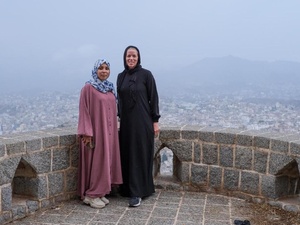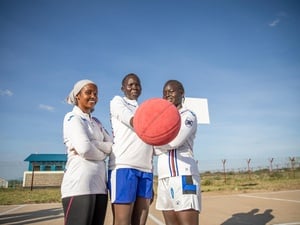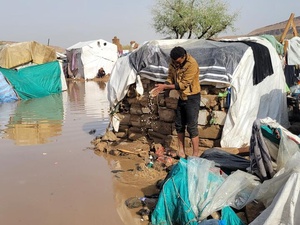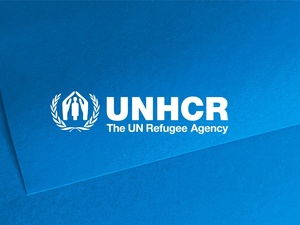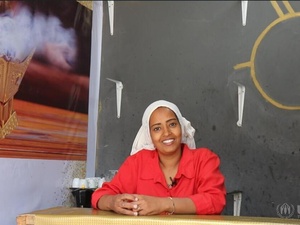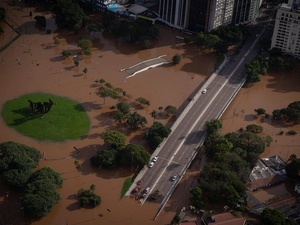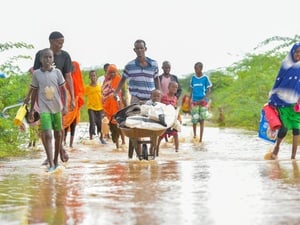UNHCR distributes aid from UAE to refugees in Yemen
UNHCR distributes aid from UAE to refugees in Yemen
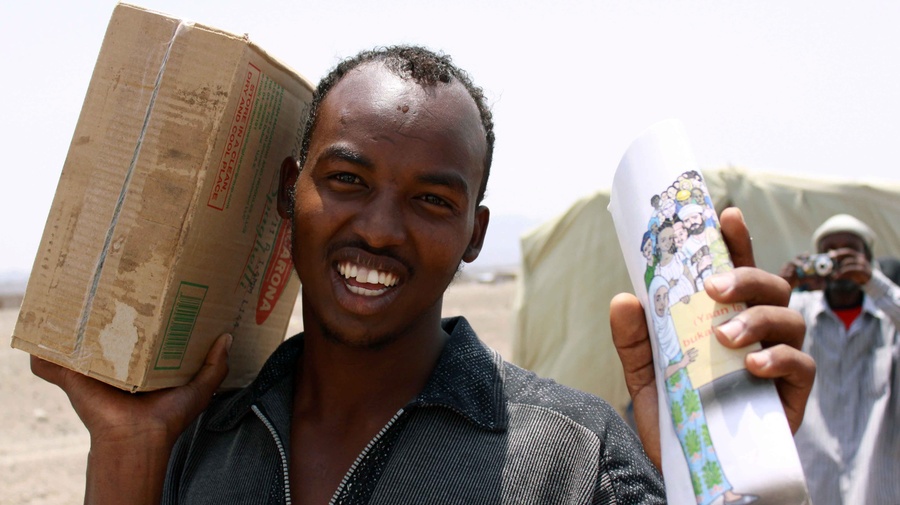
A Somali refugee holds some of the aid he received at Kharaz camp.
ADEN, Yemen, September 3 (UNHCR) - UNHCR staff have helped distribute pasta, sugar and dates to thousands of mainly Somali refugees in Yemen's Kharaz Camp thanks to the generosity of the Red Crescent Society of the United Arab Emirates and the president of the Gulf federation.
The food was donated to help the refugees as they marked the Islamic holy month of Ramadan, when Muslims must not eat during daylight hours. Staff from the UNHCR and the Society for Humanitarian Solidarity, a partner agency, handed out the food on Monday to 2,800 families in Kharaz and 800 needy Yemeni families in nearby villages - a total of about 18,000 people.
Excited children chased the trucks laden with food as they toured the camp and surrounding area, which is located some 150 kilometres west of the port city of Aden. "Every year we long for Ramadan to come," said 30-year-old Fatima, a Somali whose six-year-old son followed the food distributors. "We feel that Ramadan has started as soon as the truck stops by our door."
The Red Crescent Society of the United Arab Emirates has donated food to the refugees in Kharaz camp for the past five years. "As human beings and Muslims we are committed to solidarity," said Manaf Yassin, head of the Red Crescent's office in Aden.
Leila Nassif, head of the UNHCR office in Aden, said the donation by the Red Crescent and a federation headed by United Arab Emirates President Khalifa bin Zayed Al Nahyan was further proof "of the extreme generosity of Muslims and Muslim countries towards people in need."
Yemen is one of the poorest countries in the Middle East, with scarce resources and limited employment opportunities. Yet, it hosts some 140,000 refugees and grants refugee status to all Somalis entering the Yemen. Some 11,000 live in Kharaz camp, located in a remote and desolate area of Yemen's Lahaj region.
UNHCR and its partners run a number of projects to meet their basic needs as well as to provide essential services, including food, shelter, medical care, water and sanitation, and education. Nevertheless, despite the generosity of donors and the efforts of the government, more resources are needed.
"Additional funds would allow us to expand income-generation activities in the camp, invest in small-scale agricultural projects and offer more opportunities for self reliance," said Nassif, while adding: "The involvement of the international community as a whole is needed."
By Rocco Nuri in Aden, Yemen


